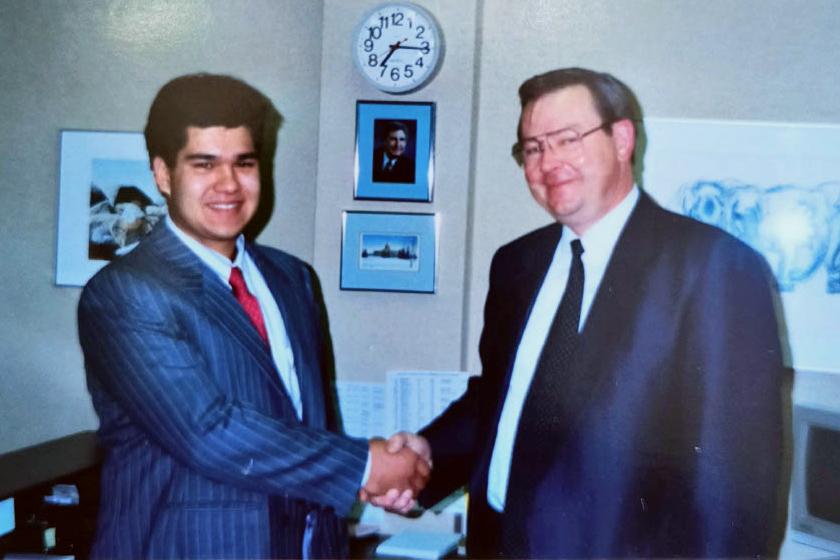Clayton Smith, 19, returned to his parents’ house after being sworn in as mayor of a central Alberta hamlet in October 1995. “I guess you can refer to me as ‘your worship’ now,” Mr. Smith joked with his father.
“Not while you’re living in my basement,” his father quipped back. But in all seriousness, his parents were proud; his mother wrote eagerly to her family back in the Philippines to let them know they now had a mayor in the family.





